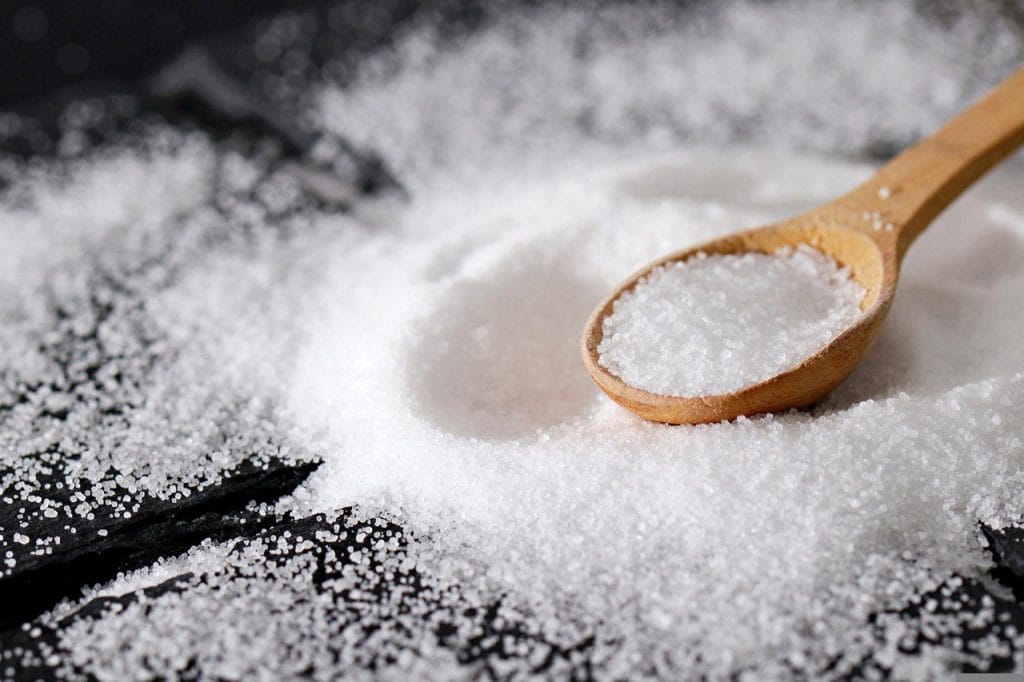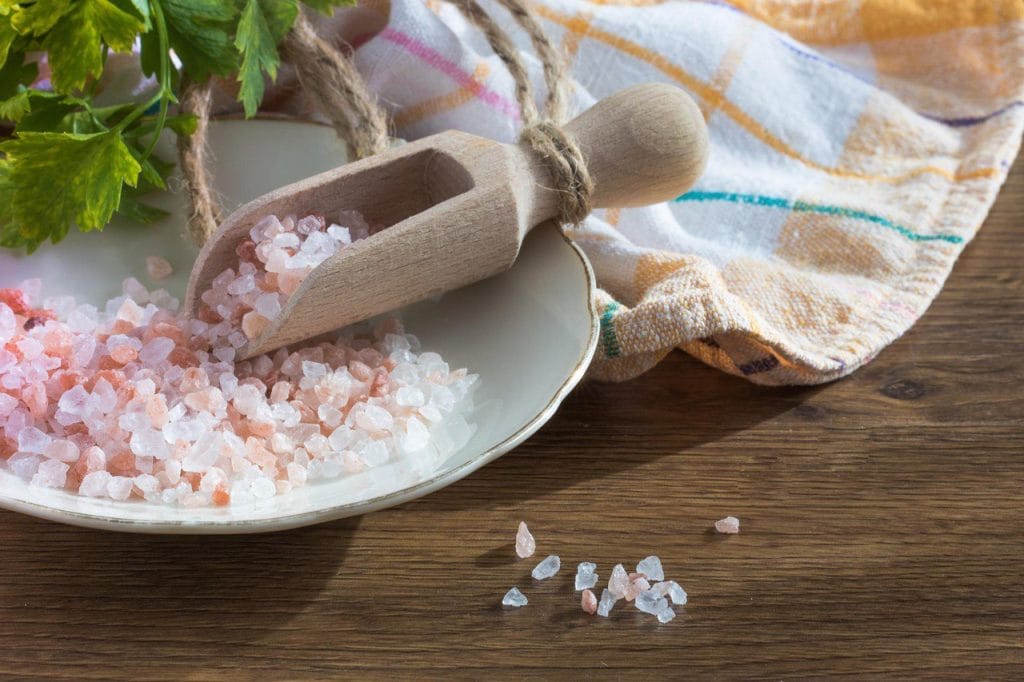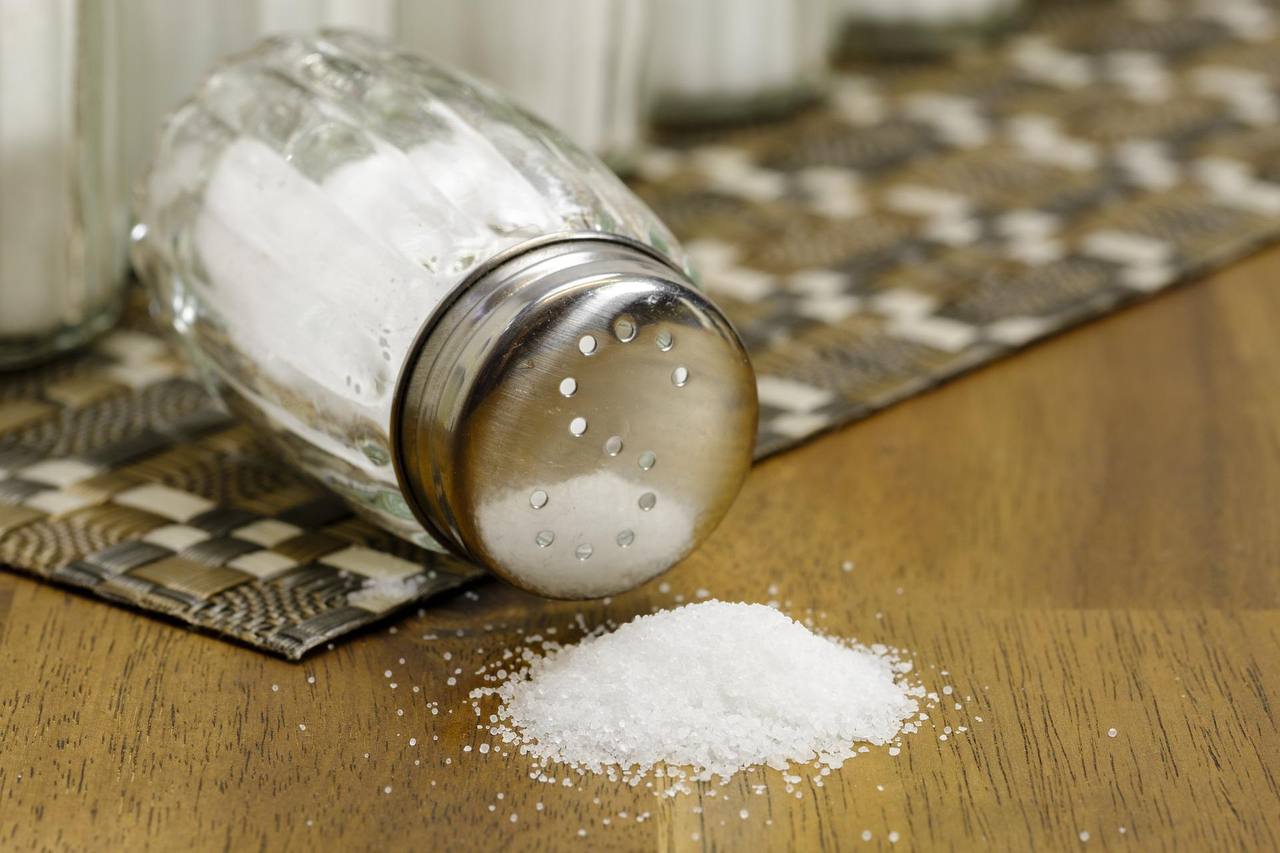One of the most popular nutrition myths is that salt is the white death and is bad for your health. We decided to check if this is true.
Information about how dangerous salt is for our body can be found here. find on websites medical institutions, for example hospitals. They write about it Media, even experts UN are sounding the alarm. Reasoning information about whether you should completely give up salt can be found on portals about dietetics and healthy lifestyle. The stereotype that salt is poison is so widespread that it can be found even in movie.
First of all, you need to figure out what it is salt. It consists of 97% sodium chloride and serves as one of the main sources of these elements for our body. Sodium - electrolyte, which plays an important role in maintaining water-salt balance, and also ensures the transmission of nerve impulses.
In itself, a lack of sodium in the blood is already quite a serious disease, hyponatremia. It can lead to severe neurological and mental disorders, seizures, coma and even death. Another danger of low sodium levels in the body is dehydration, which can also lead to severe consequences for health. Both dehydration and hyponatremia especially dangerous for older people. Sodium is eliminated from our bodies naturally through urine and sweat. This is why athletes after hard training can feel a lack of sodium; one of its symptoms is muscle cramps.
In 2016, specialists from the Cochrane Library studied the results of various studies on the relationship between salt intake, blood pressure and cholesterol and found that a low-salt diet contributes to a slight increase in cholesterol and triglycerides in the blood. And this, in turn, can bring to heart diseases. In addition, table salt is often fortified iron, iodine and folic acid, therefore, its use can compensate for the lack of these substances in the body.
American Heart Association recommends Consuming 1.5 g of sodium per day is about 3/4 teaspoon of salt. However, the average American eats about one and a half, exceeding twice the norm. The same discovered and nutritionists of Australia. And excessive salt consumption can indeed negatively affect human health.

Yes, numerous research doctors showedthat overeating salt promotes the development of hypertension, which, in turn, can lead to heart attacks and strokes. In 2020, scientists statedthat increasing daily sodium intake by just 1 g leads to a 6% increase in the risk of death from cardiovascular disease. Blood pressure influences and on kidney health, so highly salty foods can negatively affect them.
However, on this score scientists are still couldn't come to a consensus. Some of them thinkWhat evidence does salt consumption have on blood pressure? not enough. In any case, there is no need to panic and completely give up salt: proventhat consumption within one or two teaspoons certainly does not contribute to increased blood pressure. Also, 2014 review showedthat reducing the amount of salt in the diet by 2 g reduces systolic blood pressure by only 3.82 mmHg. At average values at 125–144 mmHg, such a decrease does not seem to be particularly significant.
Scientists found outthat some people are more sensitive to salt than others. They are probably the ones who should be more closely monitoring their sodium intake. But on the other hand, reducing salt in the diet will be more effective for them than for those who are not so sensitive. The risk group, according to scientists, includes older people, hypertensive patients, African Americans, people with chronic kidney disease, and those who had low birth weight.
Some research tie up high salt diets with risk development of stomach cancer. Thus, one of the studies conducted in Japan, involving more than 40,000 people showedthat this risk is as much as 30% higher in those who prefer highly salty foods.

However, scientists have not yet come to a consensus on how exactly salt can cause cancer. According to one version, she promotes reproduction bacteria, causing peptic ulcers, which can develop into cancer. According to another - diet high salt content can cause cellular mutationswhich ultimately lead to cancer.
Another danger of excess salt consumption is osteoporosis. The fact is that the body removes excess sodium through urine, and calcium is also excreted along with it. Accordingly, the more salt the body needs to remove, the more calcium it will remove, which can cause bone disorders.
It really makes sense to limit salt in your diet, since monitoring the amount of salt you eat is not as easy as it seems, especially if you eat prepared foods such as sauces. Salt is contained in almost all food products, but it is not always possible to estimate its amount by eye. Rospotrebnadzor leads table of salt content in various foods. According to them, 100 g of medium-salted herring contains 336% of the daily value of sodium, 100 g of Parmesan - 106%, and the same amount of olives - 97%. Thus, in order not to exceed the norm, you not only need to choose one thing a day, but also not use salt at all in other products, which is almost impossible.
Thus, excess salt consumption can be dangerous to health, although scientists have not yet been able to reach a consensus on this matter. Nevertheless, you cannot completely abandon it, since it is a source of sodium, which the body needs for normal functioning, and its lack can lead to dire consequences for health. Therefore, as with many other products, salt is fine in moderation, but it is unfair to say that consuming it in any quantity brings death closer.
Half-truth
Read on the topic:
- Is it true that if you eat a lot of sweets, you will develop diabetes?
- Is it true that sugar is addictive?
- Is it true that fluoride toothpastes are dangerous to your health?
If you find a spelling or grammatical error, please let us know by highlighting the error text and clicking Ctrl+Enter.






